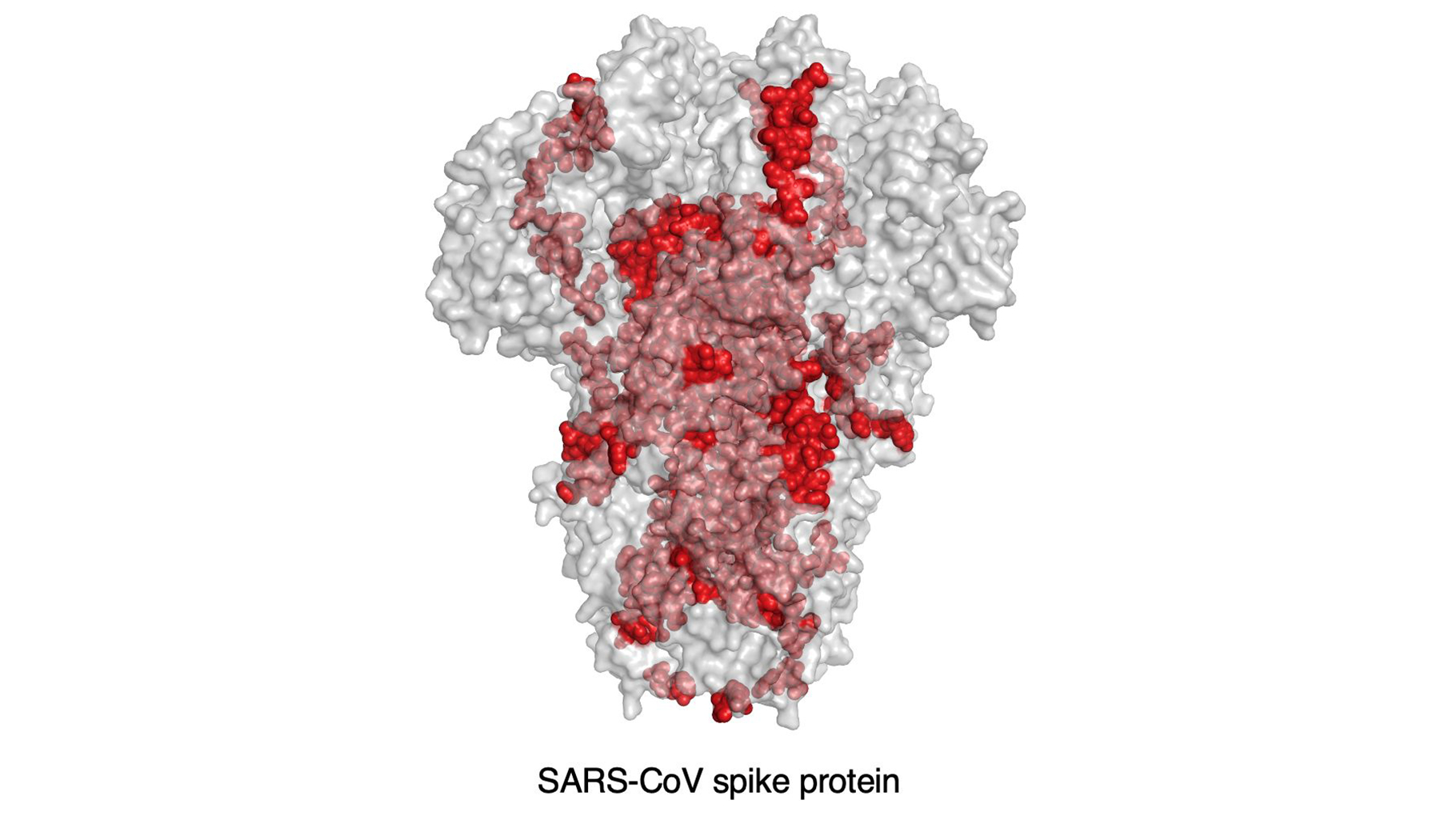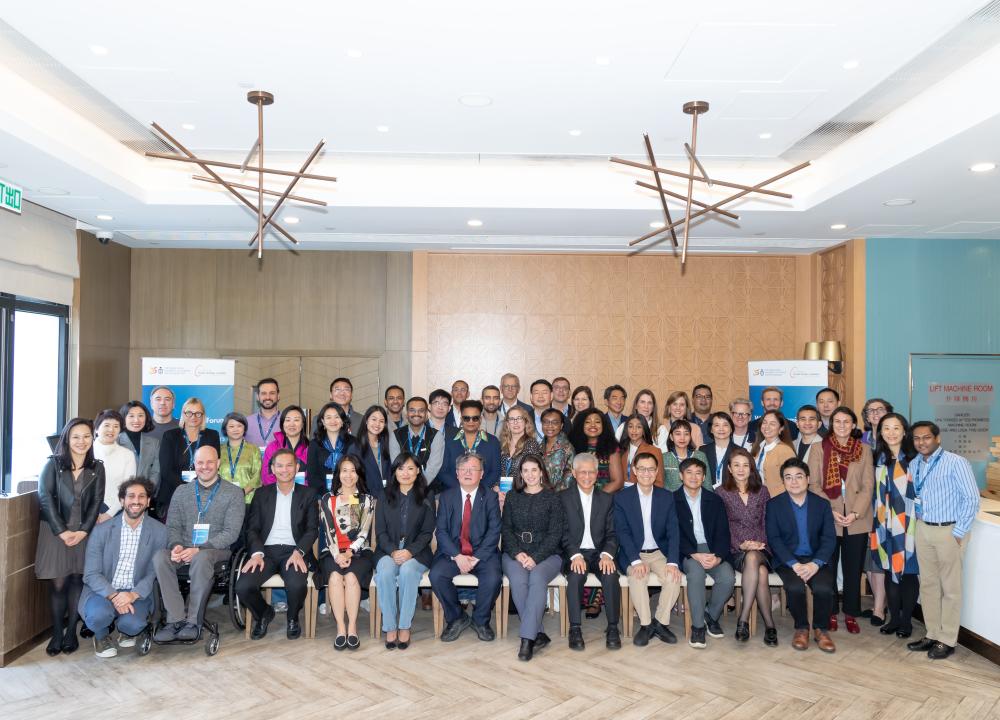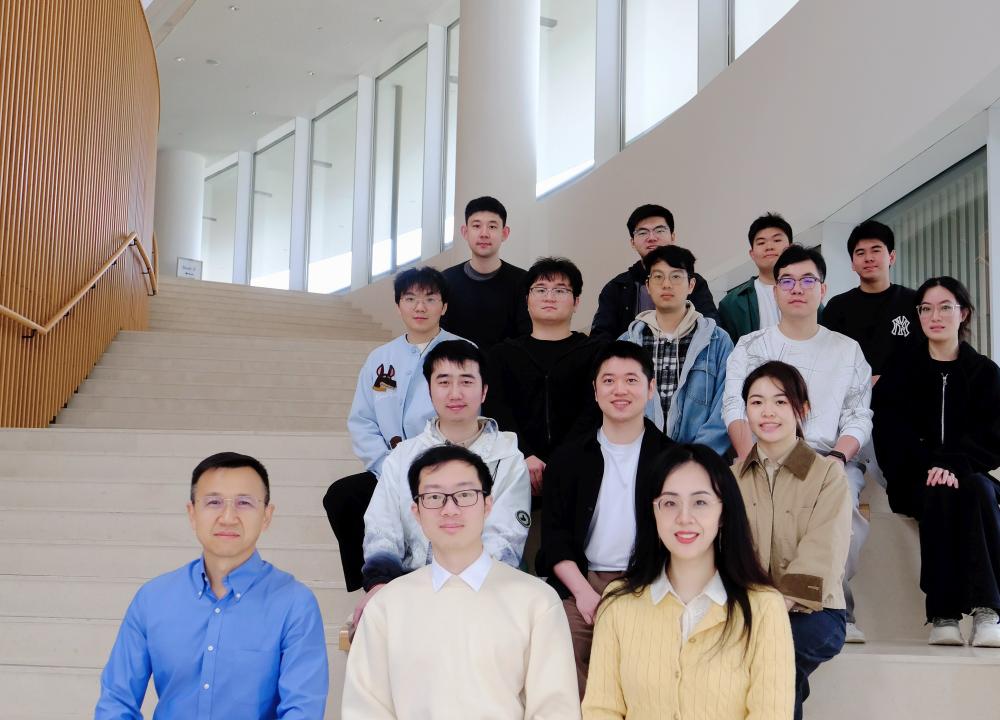HKUST Scientists Shed Light on COVID-19 Vaccine Development
A team of scientists at the Hong Kong University of Science and Technology (HKUST) has recently identified a set of potential vaccine targets which could be helpful for the development of a vaccine against the SARS-CoV-2 coronavirus – the cause of a novel pneumonia (COVID-19) outbreak which has spread to over 30 countries to date, infecting over 80,000 people and claimed over 2,600 lives*.
As genetic sequences of SARS-CoV-2 are similar to those of SARS-CoV – the virus that caused the SARS (Severe Acute Respiratory Syndrome) outbreak in 2003, scientists have been drawing on previous data and knowledge of the SARS virus in search of a way to crack SARS-CoV-2. Now, a team led by HKUST data scientists Prof. Matthew MCKAY and Dr. Ahmed Abdul QUADEER have identified a set of B cell and T cell epitopes derived from SARS – protein fragments that can trigger the immune response against SARS-CoV – that may similarly trigger an immune response against the novel coronavirus. The findings are fundamental in guiding further studies on the development of effective vaccines against COVID-19.
“While an effective SARS vaccine was never formally released, a lot of experiments had been done to identify SARS epitopes that can induce an immune response in humans,” said Prof. McKay from the Departments of Electronic and Computer Engineering and Chemical and Biological Engineering. “Among the SARS epitopes that can trigger an immune action, we found a small fraction which exists in both SARS and COVID-19, with their genetic sequences being exactly the same. We believe these are the most likely candidates which can trigger an immune response against COVID-19.”
The team has also performed a population coverage analysis and found that the T cell epitopes identified in this study had the capacity to induce an immune response in a large portion of the population – both globally and in Mainland China, during the time of SARS. “Given this epitope set also exists in the COVID-19 virus, a vaccine developed from it has the potential to also be effective for a large portion of the population,” said Dr. Quadeer, post-doctoral fellow of the Department of Electronic & Computer Engineering.
Their findings were recently published in the scientific journal Viruses.
“Our objective was to try to assist with the initial phase of vaccine development, by providing recommendations of specific epitopes that may potentially be considered for incorporation in vaccine designs,” Prof. McKay added. “More generally, our work is part of a large global effort seeking to capitalize on data for COVID-19, made available and rapidly shared by the scientific community, to understand this new virus and come up with effective interventions.”
*WHO situation report as of Feb 25, 2020
About The Hong Kong University of Science and Technology
The Hong Kong University of Science and Technology (HKUST) (www.ust.hk) is a world-class research university that focuses on science, technology and business as well as humanities and social science. HKUST offers an international campus, and a holistic and interdisciplinary pedagogy to nurture well-rounded graduates with global vision, a strong entrepreneurial spirit and innovative thinking. HKUST attained the highest proportion of internationally excellent research work in the Research Assessment Exercise 2014 of Hong Kong’s University Grants Committee, and is ranked as the world’s best young university in Times Higher Education’s Young University Rankings 2019. Its graduates were ranked 10th worldwide and top in Greater China in Global Employability University Survey 2019.
For media enquiries, please contact:
Anita Lam
Tel: 2358 6313
Email: anitalam@ust.hk
Johnny Tam
Tel: 2358 8556
Email: johnnytam@ust.hk













